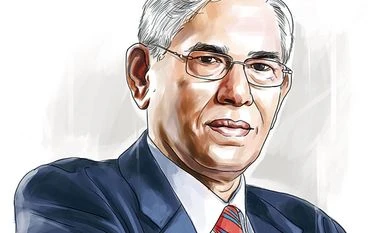His report, indicting the department of telecommunications (DoT) for causing a potential loss of up to Rs 1.76 lakh crore to the exchequer due to allotment of 2G licences at the rock-bottom price of Rs 1,651 crore, snowballed into a major controversy, with a minister losing his job and several leading industry groups facing a major embarrassment.
Former telecom minister Andimuthu Raja, belonging to the Dravida Munnettra Kazhagam (DMK), was forced to resign on account of the CAG report. Business houses such as Unitech (Uninor), Essar (Loop Telecom) and Videocon (Swan) were the ones left fuming after the report suggested that they were ineligible for 85 of the 122 telecom licences issued in 2008 on account of serious procedural lapses.
According to political observers, this was the first time the apex auditor had shown the courage to take on the mighty. While the office of the CAG was historically known for pulling up government ministries for wasteful spending, its focus on big-ticket transactions and systemic problems to ensure greater value for every rupee of public money spent was a rather new experience.
In other words, it was not the constitutional role of the institution that had changed, but CAG’s priorities. Its brief now was not to look for fire behind every plume of smoke, only the big ones.
As Vinod Rai would put it, his office no longer conducted a post-mortem on petty faults in government functioning. It undertook “performance audits to provide government an objective and clinical analysis of the efficiency and outcomes of budgetary plan expenditures”.
“We no longer focus merely on audit of government expenditure. Our focus is on the outcome of such expenditures,” Rai had said, attributing the change of direction to the reforms that swept the economy and governance.
The telecom spectrum audit was not the most important task Rai had taken up after becoming CAG on January 7, 2008. His office was also in the process of auditing the capital expenditure of Reliance Industries Ltd’s (RIL’s) K-G Basin gas fields. A CAG team was inspecting the accounts of the Commonwealth Games organisers to verify whether public money had been wasted.
Rai also embarked on an ambitious venture to get legislators’ support for major amendments to the law that governed CAG. The idea was to empower CAG to inspect all government expenditure, unlike earlier, when his team did not have a legal mandate to access the books of several organisations that were not strictly government establishments. With over 50 per cent of government spending, especially to flagship social projects, going to panchayati raj institutions, non-governmental organisations and private-public partnership programmes, Rai seemed to be on the right track.
CAG was also becoming media-savvy. Press conferences and media interactions had become more frequent and people were getting aware of the critical responsibility borne by the institution. CAG’s visibility had increased a lot, and its observations were grabbing more headlines.
This was good for Rai’s team, though he himself said it was the larger public good that mattered more. A 1972-batch Indian Administrative Service (IAS) officer of the Kerala Cadre, Rai holds a master’s degree in economics from the University of Delhi, and masters in public administration from Harvard University. In addition to mountaineering, he also has an interest in tennis and cricket.
To read the full story, Subscribe Now at just Rs 249 a month
Already a subscriber? Log in
Subscribe To BS Premium
₹249
Renews automatically
₹1699₹1999
Opt for auto renewal and save Rs. 300 Renews automatically
₹1999
What you get on BS Premium?
-
Unlock 30+ premium stories daily hand-picked by our editors, across devices on browser and app.
-
Pick your 5 favourite companies, get a daily email with all news updates on them.
Full access to our intuitive epaper - clip, save, share articles from any device; newspaper archives from 2006.
Preferential invites to Business Standard events.
Curated newsletters on markets, personal finance, policy & politics, start-ups, technology, and more.
Need More Information - write to us at assist@bsmail.in
)